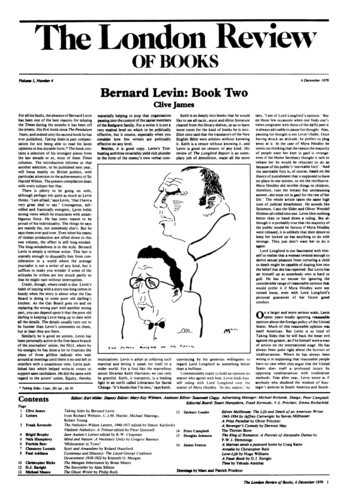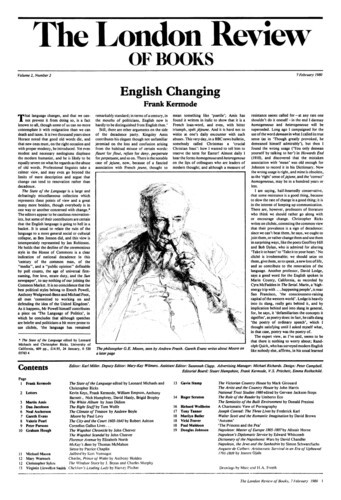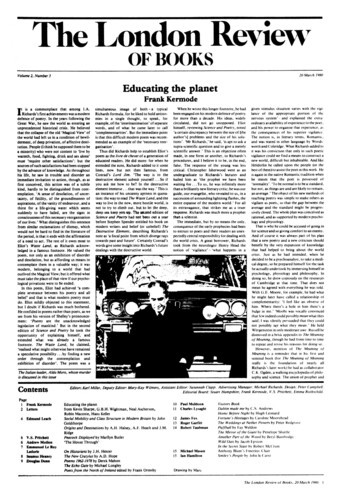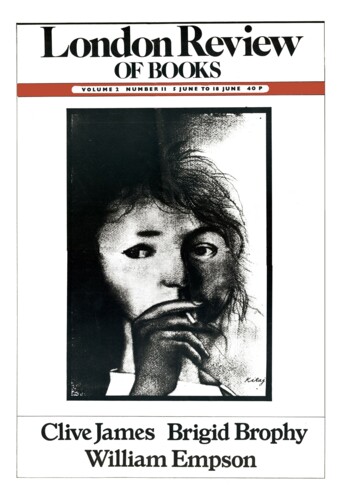Philip Roth’s House of Fiction
Michael Mason, 6 December 1979
The Ghost Writer is Philip Roth’s best novel yet. Certainly it is his most ingenious. But this familiar way of putting things may contain a mistake, a mistake which is part of the subject-matter of Roth’s book. ‘Best novel yet’ implies a future of prosperous activity which may be barmecidal. The novelist-hero of Henry James’s story ‘The Middle Years’ is amused by the view that his latest novel is ‘the best thing he has done yet’: it ‘made such a grand avenue of the future’. This story is alluded to in detail in The Ghost Writer and is structurally as well as thematically related to it. James’s title is lightly parodic. It is meant to bring into question the habit of mind which goes on perceiving each of a novelist’s mature productions as belonging to an interim or provisional stage of his career. James’s hero dies soon after the publication of ‘the best thing he has done yet’. His middle years abruptly become his last period.




